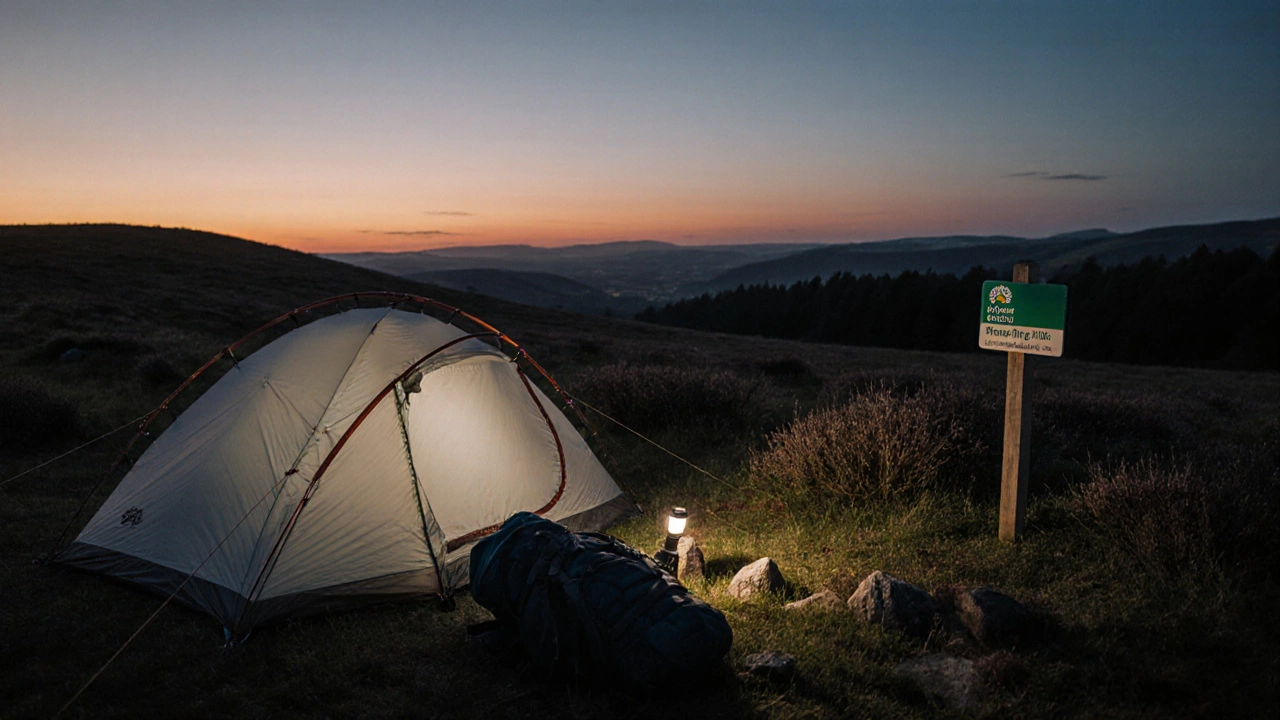Emergency Camping Tips
When you think about Emergency Camping Tips, quick, practical advice for handling unexpected situations while camping. Also known as camping emergency guide, it helps you stay safe when plans go sideways. Wild Camping, setting up a campsite outside designated grounds often means limited facilities, so knowing how to deal with sudden weather changes or injuries is crucial. Beach Camping, sleeping on sandy shores under coastal rules adds tides and sand‑drift to the mix. Finally, Primitive Camping, camping with minimal or no amenities tests your self‑reliance, making emergency prep a must.
Why a solid plan matters
Emergency preparation isn’t just about packing a first‑aid kit; it’s a mindset. Knowing the local camping safety regulations lets you avoid fines and stay out of trouble. For example, many UK beaches require a permit before you pitch a tent, and violating that can lead to a hefty fine. In wild or primitive spots, you might be far from the nearest medical centre, so a basic navigation skill set and a reliable method of communication become lifesavers. When you combine these skills with a clear evacuation route, you dramatically reduce the risk of a minor mishap turning into a serious incident.
One of the biggest mistakes campers make is assuming help is always nearby. In reality, a sudden storm on a remote hilltop can turn a calm night into a dangerous situation within minutes. Knowing how to secure your tent, waterproof essential gear, and create a windbreak can keep you dry and warm. Equally important is understanding how to signal for help—whether it’s a whistle, a flare, or a fully charged mobile phone with offline maps. These tools give you a way out when you’re stuck in a primitive area with no nearby facilities.
Gear selection plays a huge role in emergency readiness. A compact, waterproof dry bag protects medication, electronics, and spare clothing from unexpected rain. A multi‑tool with a knife, pliers, and screwdriver can replace a whole toolbox when an axle breaks on a motorhome or a campsite chair collapses. For beach campers, a sand‑anchor kit stops your tent from blowing away as the tide rolls in. And in wild settings, a portable water filter ensures you stay hydrated even if your supply runs low.
Understanding legal boundaries saves you headaches later. Many local councils have specific byelaws about where you can set up a tent, especially on coastal dunes or protected moorland. Checking these rules before you arrive prevents a forced move in the middle of the night, which can be both stressful and unsafe. If you’re unsure, a quick call to the campsite office or a look‑up on the council’s website usually clears things up. This proactive step is a simple part of any emergency plan.
Health emergencies happen to anyone, from sprained ankles to allergic reactions. Keeping a well‑organized first‑aid kit with bandages, antiseptic wipes, antihistamines, and any personal medication is non‑negotiable. In primitive sites, you might not have access to clean water, so having oral rehydration salts and a small bottle of sterile solution can be a game‑changer. Practice basic wound‑care techniques before you head out; the confidence you gain will help you stay calm if something goes wrong.
Weather awareness ties everything together. Monitoring forecasts through a weather‑alert app, listening to local radio, or checking a portable barometer lets you anticipate storms, extreme heat, or cold snaps. When a sudden temperature drop is expected, layering your clothing, sealing any gaps in your shelter, and having a backup heat source (like a compact gas stove) can prevent hypothermia. Conversely, heat‑related issues call for shade, plenty of water, and a breathable sleeping bag.
All these pieces—legal knowledge, gear, health prep, and weather monitoring—form a cohesive strategy that makes emergency situations manageable. Below you’ll find a curated list of articles that dive deeper into each of these topics, offering step‑by‑step guides, legal overviews, and real‑world tips to keep your next camping adventure safe and stress‑free.
Is Wild Camping Safe in the UK? Practical Safety Guide
Learn how safe wild camping in the UK can be with legal tips, safety gear, weather prep, wildlife handling, and a quick checklist for a worry‑free adventure.
